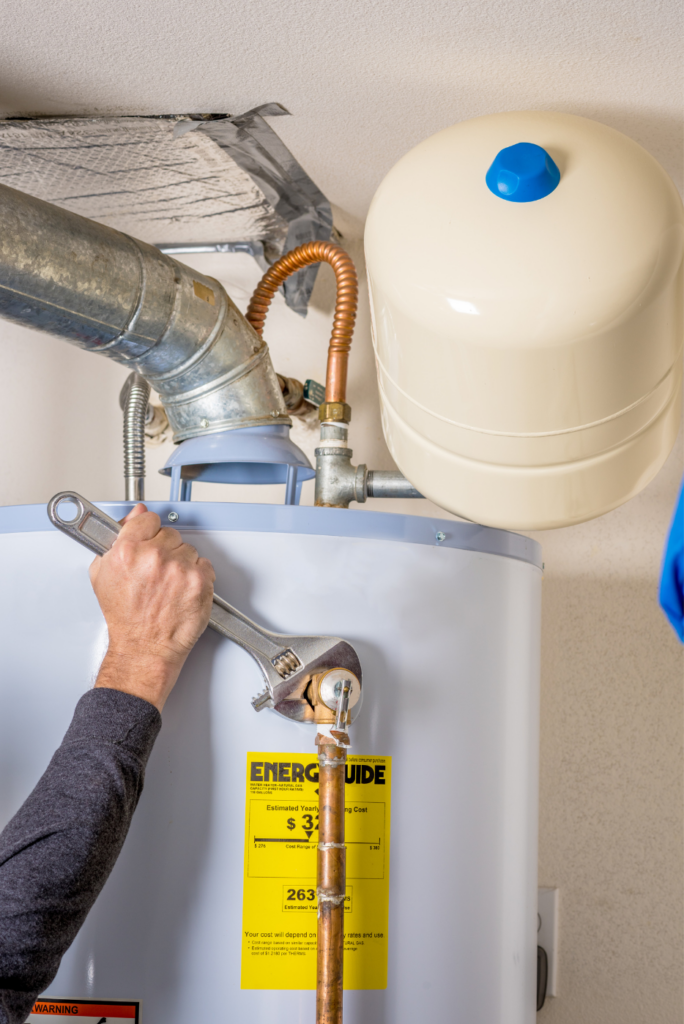General Heater Issues Explained
General Heater Issues Explained
Blog Article
We have stumbled upon this article involving Common Problems with Your Home Water Heater directly below on the net and accepted it made perfect sense to share it with you in this article.

Picture beginning your day without your regular hot shower. That already sets a bad tone for the remainder of your day.
Every residence needs a trustworthy hot water heater, but just a few recognize exactly how to take care of one. One very easy way to keep your water heater in leading form is to check for mistakes regularly and fix them as quickly as they show up.
Remember to turn off your hot water heater prior to sniffing around for mistakes. These are the hot water heater mistakes you are most likely to experience.
Water too hot or too chilly
Every water heater has a thermostat that figures out exactly how hot the water gets. If the water coming into your home is as well hot despite establishing a hassle-free optimum temperature level, your thermostat could be malfunctioning.
On the other hand, as well cold water may result from a fallen short thermostat, a damaged circuit, or improper gas flow. For instance, if you use a gas water heater with a busted pilot light, you would obtain cold water, even if the thermostat remains in perfect condition. For electrical heating units, a blown fuse might be the wrongdoer.
Not enough hot water
Hot water heater can be found in many dimensions, relying on your warm water needs. If you lack warm water before everyone has had a bathroom, your hot water heater is as well tiny for your family size. You should think about installing a larger water heater tank or selecting a tankless hot water heater, which occupies much less room and is much more resilient.
Unusual noises
There are at least five type of noises you can hear from a water heater, but one of the most usual analysis is that it's time for the hot water heater to retire.
Firstly, you must recognize with the normal appears a hot water heater makes. An electric heating system might sound various from a gas-powered one.
Standing out or banging sounds typically mean there is a piece of sediment in your tanks, as well as it's time to clean it out. On the other hand, whistling or hissing audios might simply be your shutoffs letting some stress off.
Water leaks
Leakages can come from pipelines, water connections, shutoffs, or in the worst-case scenario, the storage tank itself. Over time, water will certainly corrode the container, and discover its escape. If this happens, you need to change your hot water heater immediately.
Nonetheless, prior to your change your entire storage tank, make sure that all pipes remain in location which each shutoff functions flawlessly. If you still require assistance determining a leakage, call your plumber.
Rust-colored water
Rust-colored water implies among your hot water heater parts is rusted. It could be the anode pole, or the container itself. Your plumber will certainly have the ability to recognize which it is.
Warm water
Despite just how high you established the thermostat, you will not obtain any type of warm water out of a heater well past its prime. A hot water heater's performance may decrease with time.
You will likewise get lukewarm water if your pipelines have a cross connection. This means that when you activate a tap, warm water from the heating unit flows in along with routine, cold water. A cross link is simple to spot. If your warm water faucets still pursue shutting the hot water heater shutoffs, you have a cross connection.
Discoloured Water
Corrosion is a major source of filthy or discoloured water. Deterioration within the water container or a stopping working anode pole could trigger this discolouration. The anode pole protects the container from rusting on the inside as well as need to be checked annual. Without a pole or an appropriately working anode pole, the hot water rapidly wears away inside the tank. Contact a specialist water heater service technician to establish if replacing the anode rod will take care of the problem; if not, replace your water heater.
Final thought
Preferably, your hot water heater can last ten years before you need a change. However, after the 10-year mark, you may experience any of these mistakes more regularly. Now, you should include a brand-new water heater to your budget.
How To Troubleshoot 3 Common Water Heater Problems in Twin Cities
The Water Heater Is Leaking
A leaky cold water inlet valve A loose pipe fitting A leaky temperature and pressure relief valve A corroded anode rod A cracked tank Turn Off Your Water Heater:
Shut off your gas water heater by turning the gas valve on the unit to the “OFF” position. Shut off your electric water by switching its power off at your electrical panel. Look for a two-pole breaker labeled “water heater” and turn it to the “OFF” position. Move the ball valve connected to the water heater to be perpendicular to the piping at a 90° angle. Look for the Leak:
Depending on whether the water is coming from the tank's top or bottom, you’ll want to look for the leak in different locations.
If the leak comes from the top of the tank, carefully look for water escaping from the cold water inlet valve or loose pipe fittings. Rusted hot and cold water valves can have loose connections with the tank, with water leaking out of them.
https://mspplumbingheatingair.com/blog/how-to-troubleshoot-3-common-water-heater-problems
I recently found that post on Water Heaters Problems while looking around the internet. Enjoyed our posting? Please share it. Let other people discover it. Thanks for your time. Come back soon.
Plumbing emergency? We're ready. Report this page